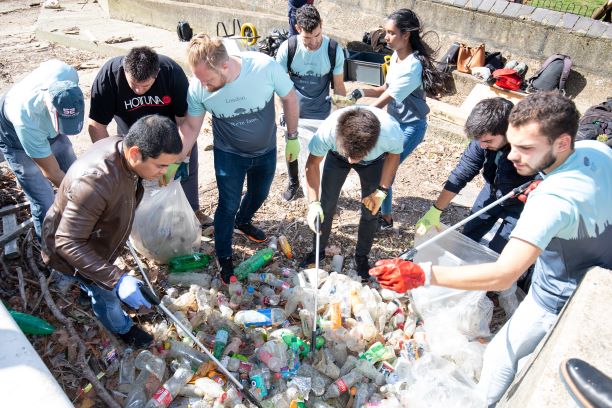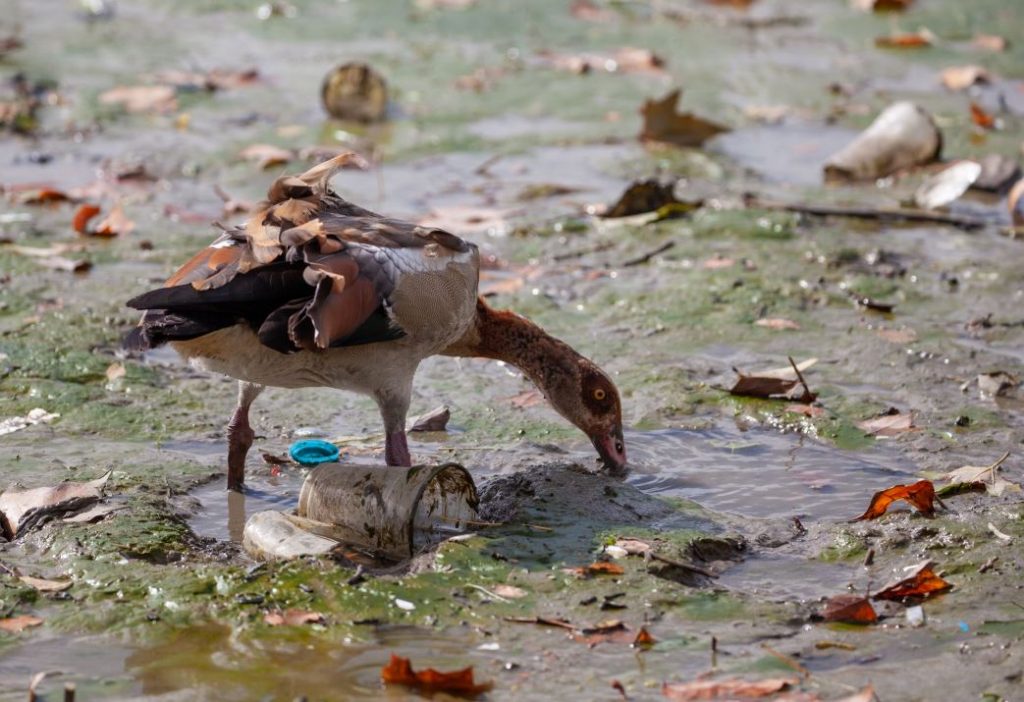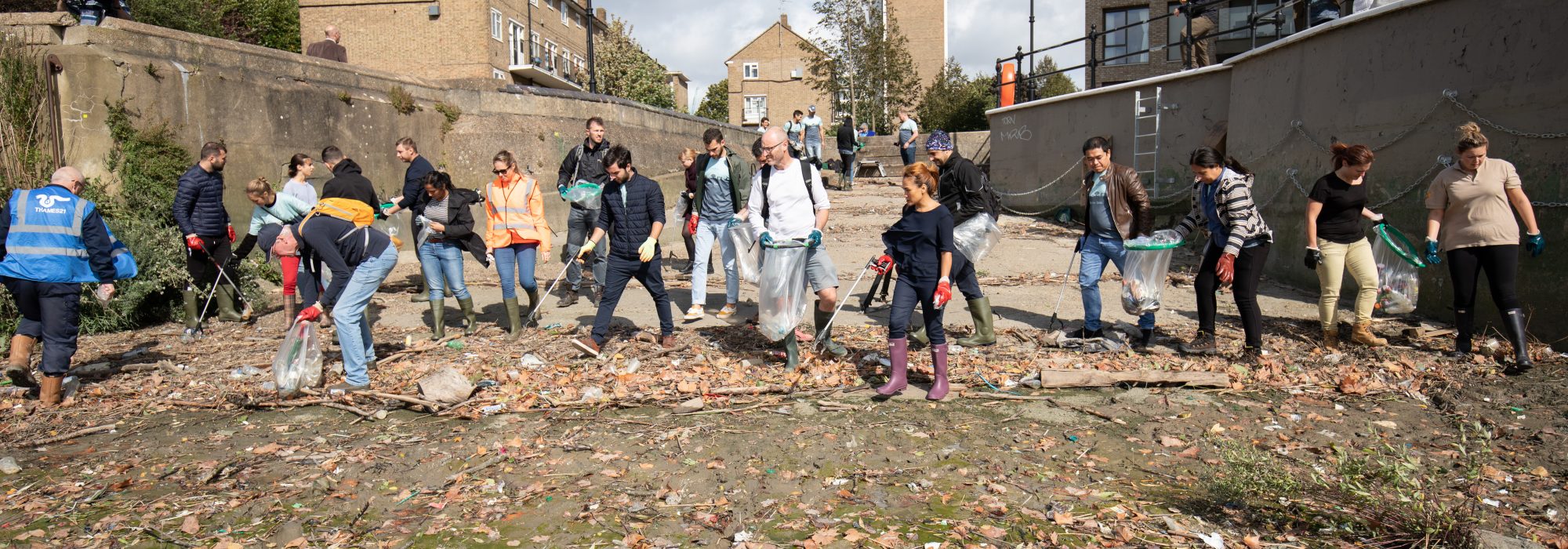Plastic pollution impact of UK’s summer heatwave: Thames bears the brunt
PRESS RELEASE
Thames21 and #OneLess plastic litter research suggests Londoners switched from fizzy drinks to still water as a result of the extremely hot weather, highlighting the increasing need for free water refill points in the city
September 20 2018, London: London’s largest plastic waste monitoring event, the annual Big Bottle Count, saw more than 100 volunteers count and remove the plastic bottles from the Thames yesterday in the biggest action of the programme so far.
3,249 bottles were counted and removed at 18 sites along the Thames (see map attached) as part of the ongoing investigation into the impact of single-use plastic bottles on the capital’s iconic river, organised by waterway charity Thames21 and the #OneLess campaign to reduce single-use water bottle consumption in London.
Londoners, aided by two stalwart Thames21 badged groups in Rainham and Grays, have removed a total of 36,667 plastic bottles from the Thames in the past year alone, once the latest count is included. In addition to the annual Big Count, volunteers count and remove bottles from key sites throughout the year as part of the ongoing plastic monitoring programme run by Thames21 and #OneLess.
’In the wake of the BBC’s Blue Planet Londoners are engaging with the plastic issue like never before,’ said Alice Hall, one of the programme’s coordinators. ‘They’re concerned about plastic impacts on the Thames, its wildlife and the wider ocean. And we’re seeing Londoners’ massive clean-up efforts starting to have an impact. But people want the problem tackled at source. We need more refill points and fountains, alongside increased effective recycling.’

The summer heatwave had an impact on Londoner’s consumption of single-use plastic water bottles, Thames21 and #OneLess data suggests. Still water bottles are routinely one of the most common plastic types found in the river, but over the summer the proportion of water bottles exceeded fizzy drink bottles for the first time. “Clearly Londoners’ consumption of bottled water increased during the hot weather. This highlights the need for more London fountains, so people can get this basic resource for free, especially with more hot summers likely” said Alice Hall.
‘Londoners have one of the highest rates of bottled water consumption in the country, getting get through two million single-use plastic water bottles a day,’ said Fiona Llewellyn of the #OneLess campaign, at the Zoological Society of London. ‘These bottles have the potential to make their way – via the Thames – into the ocean, contributing to the huge problem of ocean plastic we’re seeing across the globe. If we want to reduce London’s plastic footprint, we need the refill revolution to happen. We’re excited to be working with the Mayor of London on getting more fountains installed. We also need awareness and education around the safety of tap water, so that more Londoners – individuals and businesses – make the switch and take the #OneLess pledge.’
The latest count brings to 55,533 the number of single-use plastic bottles that have been removed from the river since April 2016, when the joint Thames21 #OneLess monitoring programme began.
The London Assembly’s Environment Committee published a report last year into the impact of plastic water bottles in London, calling on the Mayor to install refill points and fountains, drawing on key #OneLess and Thames River Watch data.

ENDS
Notes for Editors
Media Contact
Kirsten Downer
Communications Officer at Thames21
Kirsten.Downer@thames21.org.uk
07711 701 696
020 7248 7171
Thames21
Thames21 connects people with rivers by putting healthy rivers back at the heart of everyday life. We improve and restore rivers, educate and empower the community and campaign for positive change for the good of people and the environment.
Thames21 set up the Thames River Watch programme in 2014 to enable Londoners to help protect and monitor the Thames’ health by collecting crucial data from the foreshore. It offers free one-day training to anyone interested in discovering more about the river’s health and releases a report annually on the findings. Those interested in joining can contact thamesriverwatch@thames21.org.uk .The project is funded by Tideway, the company building the Thames Tideway Tunnel.
#OneLess
The #OneLess campaign has been leading the charge against ocean plastic pollution since 2016, focusing on the pervasive single-use plastic water bottle. #OneLess is creating a ‘refill revolution’ in London, transforming the capital into a place where single-use bottled water is a thing of the past and where ‘refilling’ rules.
#OneLess is led by the Zoological Society of London, in partnership with Forum for the Future, The International Programme on the State of the Ocean, and the Thames Estuary Partnership and is working with a series of major London attractions and businesses to find and implement solutions to enable a refill culture. For more information visit www.onelessbottle.org.
ZSL (Zoological Society of London)
Founded in 1826, ZSL (Zoological Society of London) is an international conservation charity, working to create a world where wildlife thrives. Our mission is realised through our ground-breaking science, our active conservation projects in more than 50 countries and our two Zoos, ZSL London Zoo and ZSL Whipsnade Zoo. For more information visit www.zsl.org.
